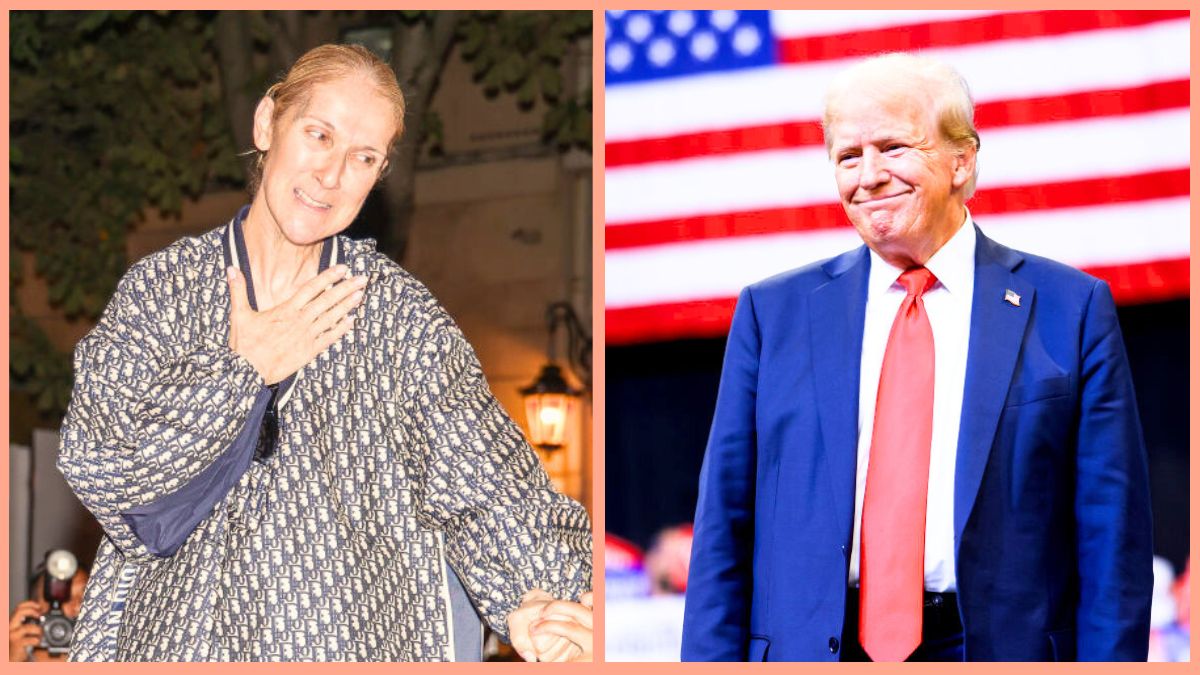With the election cycle in full swing, Vice President Harris has overtaken Donald Trump in the polls, effectively wiping out his lead following President Joe Biden’s exit from the 2024 race.
This dramatic turnaround comes as Trump’s campaign strategy appears to be taking on water — literally. At a Friday rally in Bozeman, Montana, Trump’s team decided to set the mood with Canadian singer Celine Dion‘s “My Heart Will Go On,” famously from the movie Titanic. Yes, the song from that Titanic — the one about the unsinkable ship that sank.
“My Heart Will Go On,” composed by James Horner with lyrics by Will Jennings, became an instant classic when it was released as part of the Titanic soundtrack in 1997. The song’s powerful vocals, courtesy of Celine Dion, and its sweeping orchestral arrangement helped it become a global hit. The song’s association with the Titanic, however, has also made it an unlikely choice for a political campaign rally — especially one that seems to be navigating troubled waters.
Celine Dion herself, through a perplexed statement on platform X, highlighted the absurdity of its usage: “…And really, THAT song?” It’s like Trump is honestly admitting that his campaign is headed for disaster and embracing its sinking future with her song as the backdrop. The statement goes on to clarify that the use of the song was not authorized and that Dion does not endorse Trump or his campaign.
The unauthorized use of Dion’s song might just add to the typhoon of troubles he faces: Looming bankruptcy, multiple other lawsuits, and now a potential copyright clash. It’s a well-known fact in entertainment circles that no self-respecting artist wants their work to become the anthem for controversy, especially within the polarizing atmosphere of a MAGA rally.
U.S. copyright law, specifically, allows politicians to use popular songs at their events through blanket licenses obtained by venues or their campaigns from performance rights organizations (PROs) such as ASCAP (American Society of Composers, Authors, and Publishers) or BMI (Broadcast Music, Inc.). These organizations collect royalties on behalf of artists and distribute them accordingly. Despite these blanket licenses, artists still maintain a certain degree of control. They can expressly request their PRO to exclude their songs from being used in contexts they find objectionable.
Over the years, a veritable “who’s who” of the music industry has objected to Donald Trump’s use of their songs. The Rolling Stones famously threatened legal action against Trump for using their songs without permission. Artists like Rihanna, Axl Rose, and the estates of Prince, Sinead O’Connor, and Tom Petty have all said “thanks, but no thanks” to having their creative works associated with Trump’s divisive rhetoric.
If Dion decides to pursue legal action, she may have a strong case. And if Trump insists on sticking with the nautical theme, maybe “Row, Row, Row Your Boat” would be a safer bet.
